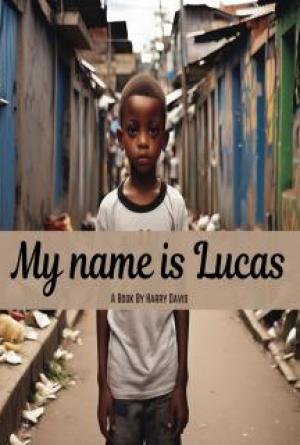Nobody was sure how it all
started. Thandi was away in Brussels at the time and the Girls Club was thus
reduced to three. First Rosy was seen giving Norma a tongue lashing causing
Norma’s beautiful features to crumble into tearful submission. Next Rosy was
seen scolding the gorgeous Kendall reducing her also to a sobbing wreck. Pop-Up
Parties ceased, the Girl’s Club Wednesday meetings ceased and the members were
seldom, if ever, seen in the Village together. What caused this disintegration
of formerly fun-loving friends was a mystery to the Villagers who now missed
the Pop-Up Parties.
There was a common denominator for the cause of
this disintegration and it appeared to be Rosy.
Rosy was the one causing the Girls Club to slowly fall apart. It was only after careful scrutiny that this
could be seen as it went unnoticed by the Villagers.
Rosy lived a peachy life. Her daily routine
included lunching with the Colonel or whoever was available, consuming a bottle
or two of wine then waiting for the evening get-togethers.
On the early evenings when the Girls Club got
together, Rosy was often already well on her way. Norma and Kendall would arrive after a long
day at the office, looking forward to a few glasses of wine to relax. Low and behold, Rosy would then have a go at
either Norma or Kendall – usually Kendall – about issues in their personal
lives. They would be told to ‘suck it
up’ and ‘to get a life’. So as time
passed, a distance grew between the girls – especially for Kendall. Kendall didn’t live in the village, so she
tended to be seen less and less – this was her excuse for not being around as
often, but there was more to it.
With Thandi still in Brussels, Kendall felt she no
longer belonged to the Girls Club and felt alienated. Thandi and Kendall had a very close
friendship, regardless of the distance between them. Kendall at one stage could confide in Norma
about certain personal issues but Kendall no longer trusted Rosy. Norma and Rosy still met up often as they
both lived in the village, meeting at the Sizzling Steak. However, Kendall was
the only one who had the daunting task of driving home after a few glasses of
wine.
Another issue that came to the fore, albeit a small
issue but an issue nonetheless, was that Kendall no longer picked up and
dropped off the girls when going for drinks outside the Village. Rosy had to take on this task which she
clearly didn’t appreciate the responsibility.
Thus the tension still remained between Rosy and Kendall.
On the night of Rosy scolding Kendall, Kendall
surprisingly retaliated and told Rosy to ‘suck up’ her own issues. Clearly Rosy
didn’t like this, for a change someone was telling Rosy her fortune and she was
getting a taste of her own medicine. The
rift within the Girls Club was growing.
Kendall noticed that she no longer received text
messages, especially from Rosy, to include her in lunches and
get-togethers. Kendall knew all this was
going on but she had other friends in the village. This saddened Kendall at
first, but she then realized that she really didn’t need friends like that,
that were being two-faced. Norma & Rosy seemed to still have a
connection, perhaps it was Rosy poisoning Norma’s mind. We wonder how long this will last, perhaps
forever as these were the trysts of the faulty Villagers.
So Kendall was not too perturbed when
she met her billionaire Australian wine farmer – she was swept off her feet –
at last she had found love & happiness.
She would form her own Girls Club in the winelands of her new country of
abode.
Thandi will always be the gracious,
beautiful lady she is. She will be in
whatever country her family needs her to be in, her duties as a wife and mother
being fulfilled to the utmost. She will
be true and honest to her friends, even if at times some have taken advantage
of her and given her incorrect information.
Her days of being part of the Girls Club are numbered, Brussels calls
once again.
Norma’s
future is still uncertain. As sexy and
outgoing as she is, she still cannot decide whether she wants to settle down
with one man – there is too much excitement in hunting down the men in the
rainbow nation that we live in.
As for
Rosy, she will live out her life wanting to know everyone’s business and
putting in her few cents worth. She will
still talk about throwing Pop-Up Parties but seldom will one actually
transpire. As long as she can appear in
the local newspaper once in a while, for whatever reason, she will carry on her
daily trysts.
********************
‘It has begun’ said Johan throwing copies
of ‘The Economist’, ‘The Financial Times’ and ‘The Telegraph’ onto the table in
front of Jacques at Dreamers. ‘Your mate over in London is mobilizing the
Foreign Press on Zuma’s criminal charges issue. I don’t get the New York Times
but I am sure they will pick up on the story from the ‘The Telegraph’. The
follow-up story will probably introduce the Chinese involvement which is of
immense interest to the American readers’.
‘I love it when a plan comes together’
said Jacques smiling and shaking his co-conspirator’s hand.
*************************
‘Mr Zuma has failed to tackle the scourge of
corruption. The ANC under his aegis has sought to undermine the independence of
the courts, the police, the prosecuting authorities and the press. It has
conflated the interests of party and state, dishing out contracts for public
works as rewards for loyalty—hence the bitter jest that the government is in
hock to ‘tenderpreneurs’. This has reduced economic competitiveness and bolstered
fabulously rich black elite. As a result, too little wealth trickles down’.
The
Economist also offers some advice to improve integrity
and bring about change, including the disposal of the president. ‘One of the
parliament’s worst features is its party-list method of choosing members, who
are thus entirely in thrall to ANC bosses rather than to the voters: a
constituency-based system would make them more accountable’.
Although the ANC still has no obvious
alternative leader, the party should look to chuck out Mr Zuma when it holds the
next party election though pollsters consider that unlikely’.
The
publication also states that South Africa needs political competition. ‘The
best hope for the country in years to come is a real split in the ANC between
the populist left and the fat-cat right to offer a genuine choice for voters.
Until that happens, South Africa is doomed to go down as the rest of Africa
goes up’.
*************************
Financial Times
May 4, 2014
12:10 pm
S Africa’s stuttering
economy adds to gloom in run-up to election
By Andrew England in Johannesburg
‘The International Monetary Fund forecasts growth of 6.5
per cent for Sub-Saharan Africa, excluding South Africa this year. But it has
revised downwards its estimate for South Africa from 2.8 per cent to 2.3 per
cent, which compares to growth of 1.9 per cent in 2013.
Mr Zuma defends his record by pointing out that he took
office in 2009 at the height of the global economic crisis. South Africa – the
African nation most exposed to global trade and one of the most liquid and
traded emerging markets – slumped into a recession that year that cost 1,0m
jobs.
But Mr Zuma’s first term has been characterized by
complaints over policy indecision, coupled with concerns that corruption and
cronyism are on the rise.
Under his watch, labor relations are perceived to have
become more volatile and rating agencies have downgraded South Africa. Moody’s and
Standard & Poor’s have the country on negative outlook and rating agencies
will be watching the elections and the composition of the next government
closely.
Last month, Moody’s cited strike-related business losses,
high unemployment and wide income disparities as “credit challenges” for the
country.
In December, S&P warned it could lower South Africa’s
ratings if the business and investment climate weakens further, for instance if
labor disputes escalate again or GDP growth weakens ‘significantly further, or
if political tensions rise’.
*******************
________________________________________________________
The
Telegraph
London
Saturday April 26, 2014
_________________________________________________
‘President
Zuma is accused of using £13.8m of public money on home improvements’
Siphiwe Sibeko/Reuters.
2 of 2
Mr Zuma added
a swimming pool, amphitheatre, chicken run to his country home in KwaZulu Natal
Marco Longari/Getty Images
Criminal charges of corruption,
racketeering, fraud and theft of public money were laid against South Africa’s
President yesterday.
Jacob Zuma is accused of using public money to pay for a
swimming pool, amphitheater, chicken run and other improvements to Nkandla amounting
to R79-million at his country home in the KwaZulu Natal province of South
Africa.
Mr. Zuma was heavily criticized by the country’s
corruption watchdog yesterday. Afterwards, two South African opposition parties
visited police stations to lodge 12 charges, including corruption and
racketeering’.
********************
The Fourth Pillar said that in
his inauguration speech, he had told his future government: ‘We must hold
ourselves to the highest standards of service, probity and integrity’.
Instead, he has presided over
some of the lowest points in South Africa’s post-apartheid history, shielded
corrupt cronies and used his background as the ANC’s intelligence chief to
deflect critics.
The conclusion of a public inquiry into the
fatal August 2012 shooting of 34 striking miners by police at Marikana has been
repeatedly delayed. The poor state of the country’s education system is rarely
out of the headlines since 1.7m children in one province were forced to go
without textbooks for almost a year because of local government corruption’.
*************************
Jacques looked back at Zuma’s time in office
and the progress made by the African National Congress since 1994 and found a
report by the Fourth Pillar’s Stephan Mulholland that alarmed him. The edited gist
of Stephan’s article read: ‘South Africa now employs more staff than the
private sector. We now have more people on the State Payroll than the United
States of America which has a population six times the size of South Africa’s
and a Gross Domestic Product 45 times the size.
This occurs while unemployment in the private
sector rose.
Public service costs in South Africa are
proportionately amongst the highest in the world at about 12% of Gross Domestic
Product. This compares to Russia 3.7%, Nigeria 4.0%, Ruanda 3.5%, and Egypt 6.9%.
And you can bet your bottom dollar that the
bulk of the 3,03 million civil servants, making up 22,6% of the South African
workforce (most governments 11%) will back to the hilt a ruling party that has
created for them the largest gravy train in Africa.
In addition, corruption in South Africa has
been rampant devouring R30-Bn in public funds a year’.
*************************
Jacques naively thought that this ludicrous
state of affairs must surely be grounds for a taxpayers’ march, a taxpayers’
strike or even better, grounds for a taxpayers’ to withhold their taxes
in revolt.
He was given the draft of an as yet unpublished
book called ‘African Kleptocrats’ in which he read:
‘The book deals with the fifty four
African countries that have descended into kleptocracies after the departure of
the European colonialists. The book traces in detail the attempts at democracy
by the worst ten of these post-colonial African countries and how each has
descended into a failed state at the hands of black despots. The book follows
the history of these foul regimes and the methods used by their kleptocrats to
claim national assets for themselves and their despicable elite
connections. These criminal acts are always to the detriment and extreme
discomfort of the populations of the affected countries’.
Muammar Gaddafi Child soldiers
Mabuto Seseseko King Maswati
Robert Mugabe Idi Amin
That author had concluded ‘The purpose of the book is to alert
young South Africans to the danger signs which went unheeded for forty or more
years in each of Africa's newly democratised countries. South Africa is well
down the same road unless their young people become educated, instil Christian
middle class values into their societies and throw off the shackles currently
placed on them by the greedy and ignorant post Mandela kleptocrats.
Jacques went on to read from a book by the same author called
Stepping Stones:
‘Kleptocracy
derives from the Greek words kleptes,
meaning ‘thief’, and kratos, meaning
‘rule’. It is a word used to describe a government widely engaged in corruption
to extend the personal wealth and political power of individuals in the ruling
class.
A
corrupt and dishonest government, characterised by greed, is described as
kleptocratic. Such a government is typically run by rulers who are thieves and
who pillage public funds to the detriment of the poor, sometimes without the
pretence of offering any form of honest public service.
These
kleptocrats then exploit a country’s natural resources for their own greedy
benefit.
The
money on which these evil managers of men prey is almost always funds earmarked
for the building of public amenities, schools, hospitals, roads, parks and public
facilities. Thus the ordinary citizen is prejudiced, inconvenienced and
deprived by these selfish kleptocrats.
The
term ‘kleptocrat’ was first used in the 1960s to describe the activities of the
ruler of the independent Congo, Colonel Joseph Mobutu Seseseko, who plundered
the rich natural resources of that country for his personal benefit.
However,
the term could equally have applied to his colonial predecessor, King Leopold
II of Belgium. It is said that the megacity of Brussels, a European Union bastion,
was built with the kleptocratic proceeds of the resources of the Congo Basin.
The
story of Africa is one of the Europeans plundering the natural resources of the
continent and then, when caught with their hands in the cookie jar, hastily
effecting a democratic handover to the most likely African kleptocrat’.
‘Same
circus, different tent’ thought Jacques as he pondered the new wave of
colonialism. This time the rape of Africa was being perpetrated by China.
Jacques
was curious why King Zwelithini had mentioned the Fujian Province in many of
his speeches and initiatives. He remembered from his earlier research that a
report that he had once read, on the illegal influx of Chinese immigrants to
South Africa, had mysteriously dis







